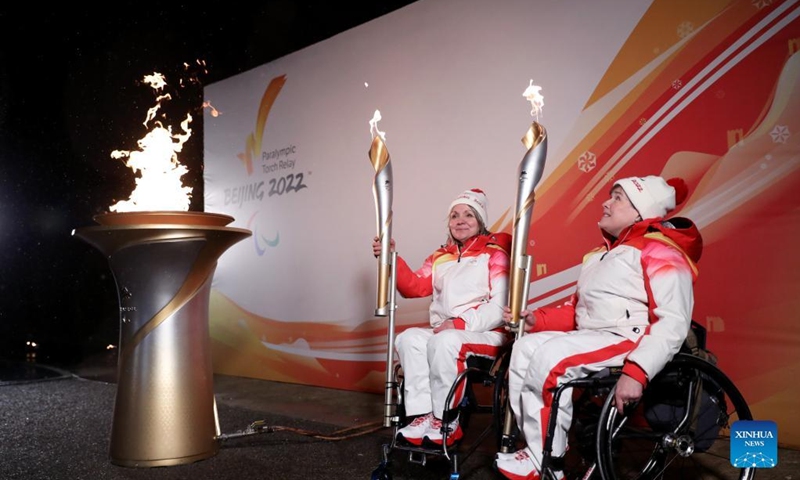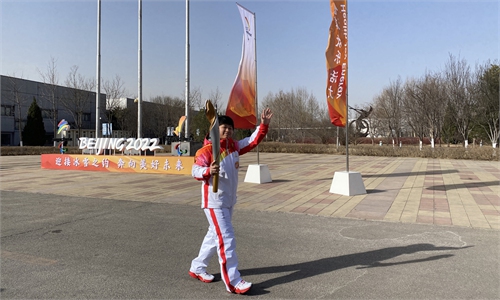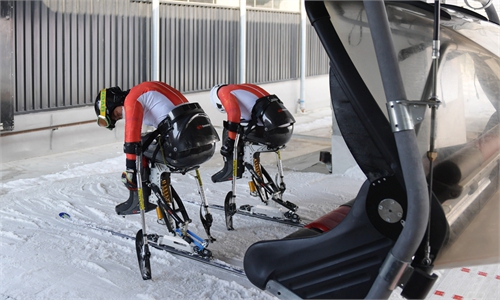SPORT / OLYMPICS
What is the origin of the Paralympics?

Torch bearers Aileen Neilson (R) and Angie Malone, wheelchair curlers, hold their torches during the Paralympic Heritage Flame Lighting Ceremony for the Beijing 2022 Winter Paralympic Games in Stoke Mandeville, Britain, Feb. 28, 2022. Photo: Xinhua
The word "Paralympics" is a portmanteau formed by two different words: paraplegic and Olympic. The special word originated in 1948 when it was a sports competition for British World War II veterans with spinal cord injuries. It was launched by Dr Ludwig Guttmann, a German-British neurologist at Stoke Mandeville Hospital in the UK.The Games adopted a humanitarian ambition to become a competition for the disabled sports community to be held in parallel with the Olympic Games. It was called the 1948 International Wheelchair Games and it was held at the same time as the London Summer Olympics in the same year.
In Rome 12 years later, the term "Paralympics" was officially used for the first time to describe the sports event that emerged in 1948. This was one of the milestones of the Paralympics because it included more athletes with a different range of physical disabilities, and led to the term of Paralympics being redefined.
Now, the "Para" in Paralympics is seen as referring to the Greek term "para," meaning "beside" or "alongside." It suggests that the Paralympics are parallel Games with the Olympics and the two exist side-by-side.
Besides, the Paralympic Games include both winter and summer events. Any city that bids to host the Olympics is also required to host the Paralympics. This is to follow the "one bid, one city" policy agreed on by the International Olympic Committee and the International Paralympic Committee in 2001.



